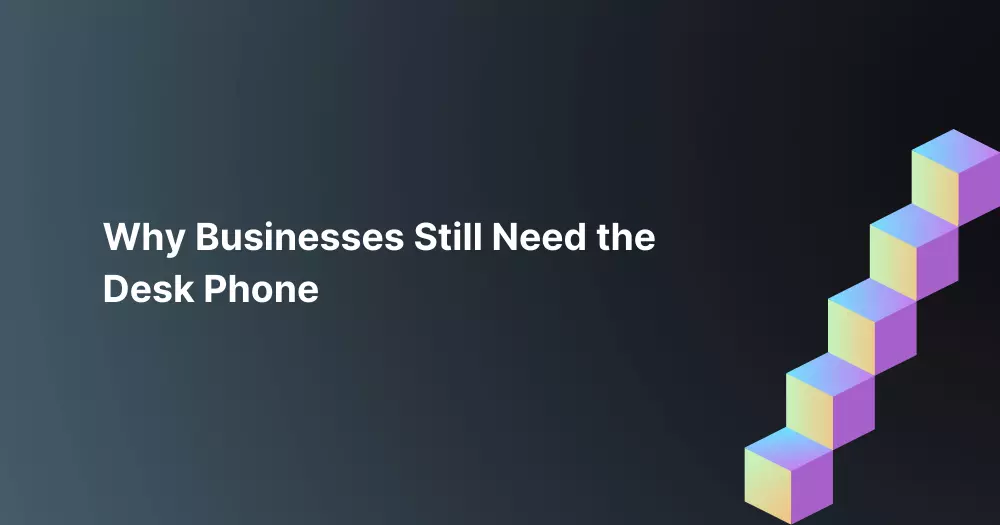
Consumer landlines are becoming extinct. A recent U.S. government report revealed that over 50% of households have become mobile-only. Maybe an even greater surprise was AT&T’s announcement that it plans to end copper POTS (Plain Old Telephone Service). The near end of traditional telephony service is clear. What about the landlines for businesses?
For most businesses, it isn’t as easy to give up a conventional desk phone. Cellphones, email, and cloud-based team communications are all alternatives that point to the end of business telephony. However, there are several reasons why businesses shouldn’t turn away from desk phones.
There are inherent features of desk phones that still serve as internal communications needs of enterprises. At the same time, the office telephone is evolving, and the following innovative features can be integrated as your business grows.
Also called direct inward dialing (DID), extension dialing enables employees within a company to call each other directly. Telephone service providers offer three-, four-, and five-digit dialing depending on the company’s needs. You can use multiple extensions without paying for new lines.
Employees can extend their office phones beyond their physical office. The Find Me service enables the user to receive calls regardless of their physical location. The Follow Me service gives the caller access to the user irrespective of the user’s actual device. It will try to locate the person across all their entered numbers. This allows employees to travel or take client calls without the risk of missing an important call.
Email, instant messaging, text messaging, and other collaborative capabilities can be integrated into office phones. Some well-known service providers also offer unique tools to help locate a called party and send an alert to the caller as to the called party’s whereabouts.
Wireless desk phone models provide the features of a desk phone with the convenience of a cell phone. This allows the user to move freely within a building while still able to send and receive calls, chat, or send instant messages.
What isn’t going away is the need for businesses to remain connected among employees and with customers. Traditional telephony services have historically dominated business communications, and while voice communications are evolving, they remain essential. When you are ready to close the communications gaps, and start focusing on operations, visit our business voice center.